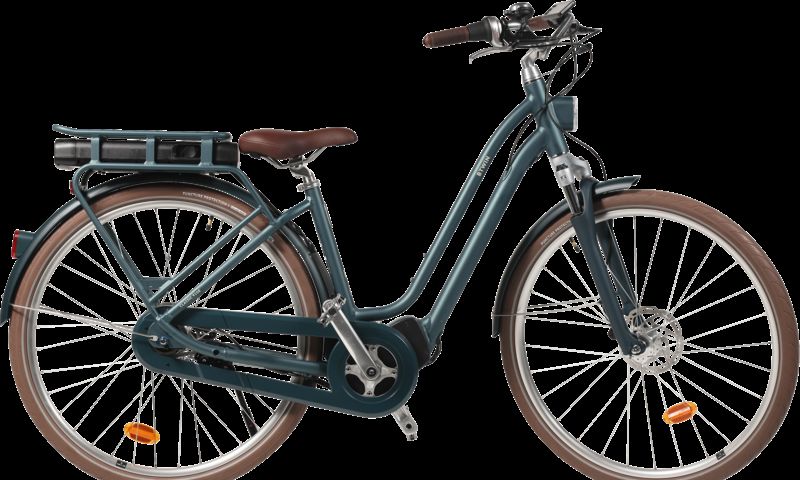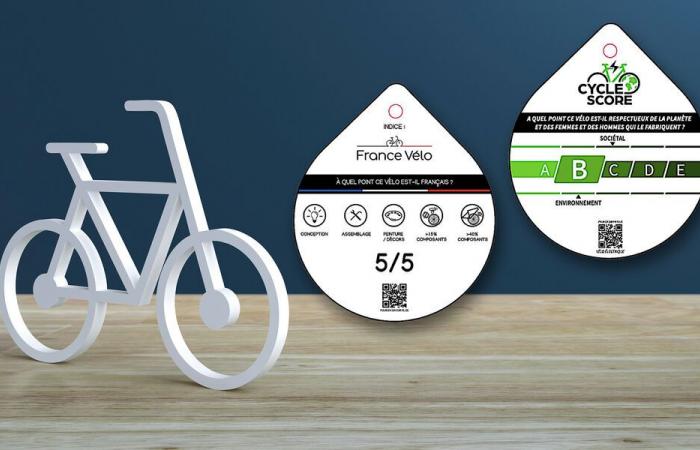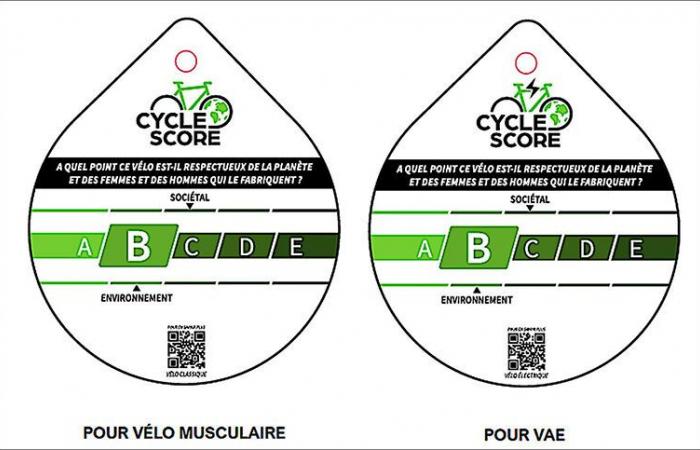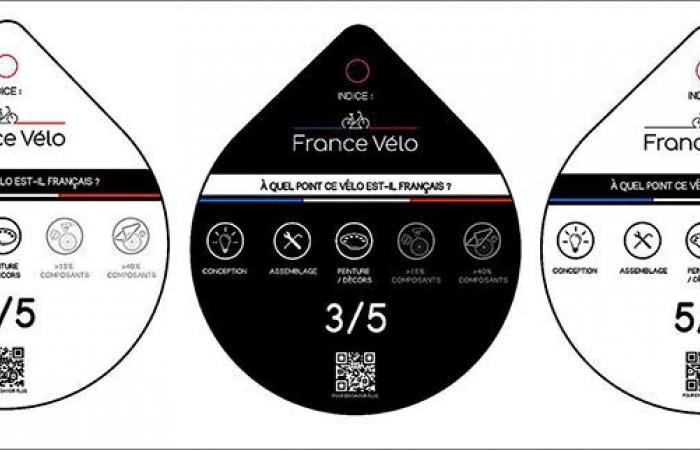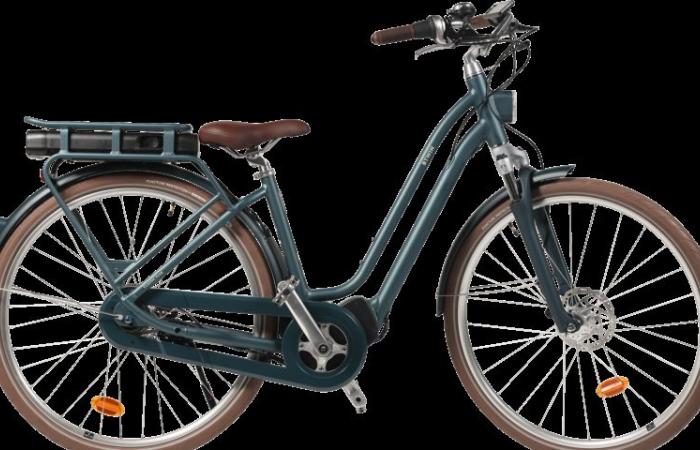Cycling professionals want to accelerate the reindustrialization of France. Out of 2.2 million bicycles sold in France in 2023, less than 650,000 were assembled there and only 10,000 to 20,000 frames were manufactured there (almost all frames today come from Taiwan and, in one to a lesser extent, from Vietnam and China). Objective of the sector? Assemble 2 million cycles and manufacture 300,000 bicycle frames per year in France by 2030. Ambitious.
Cyclescore, for environmental and societal impact
The introduction of new labels, which will appear in the fall, aims to encourage manufacturers and better inform consumers. The first, Cyclescore, is inspired by Nutri-Score or Planet-Score. It covers in equal parts an environmental component (materials used, painting processes implemented, reduction of distances between components, assembly sites, places of sale, or even lifespan of products) and a societal component ( gender equality on the production site, disability inclusion and integration, greenhouse gas emissions, etc.). The award criteria are demanding. Thus, a manufacturer who does not commit to the availability of spare parts for at least 7 years (5 years for an electric bike) is excluded from the system. Another example, a frame painted with solvent-based paint will be penalized, the most favorable option consisting of using recycled powder paint. In total, around fifteen criteria come into play.
The France Vélo index, for the most French bikes possible
The second label targets French cycle manufacturing. Five key stages are taken into account: design, assembly, painting and the share of components produced in France comprising two levels, at 15% or 40% of the total value of the components. Design and assembly are essential to qualify for the label. In other words, the research and development teams are necessarily based in France, as is the assembly line for 100% of the units of the same model.
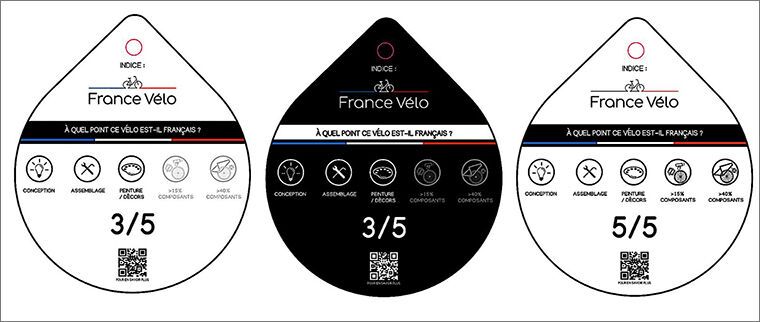
Two labels or nothing
Did consumers really need two additional labels? There are already so many, in different areas, that it is difficult to find our way around. But none in the cycling world. “Consumers are increasingly sensitive to ecology and want to consume locally, including when it comes to choosing a bike”assures Florence Gall, general delegate of the France Vélo Network, at the origin of the project. But why two labels, and not just one? “Ademe [Agence de la transition écologique, ndlr]part of the discussions, did not wish to support a label which addresses criteria linked to French manufacturing because the question of made in France goes beyond its prerogativesexplains Florence Gall. We therefore created with it the Cyclescore on one side, and the France Vélo index on the other, because the sector was keen on it. »
Complementary or contradictory?
However, there are several mechanisms governing designations relating to the French origin of products. Alongside complex regulatory texts (European Union Customs Code) which govern “made in France”, private initiatives bringing together professionals are emerging. Thus was born the Origine France Garantie label, well established today, and which some bicycle manufacturers have already adopted. This is the case of CMT from Isère and Ultima Mobility, based in the metropolis of Lyon. They would in fact obtain a France Vélo index of 5/5. And could therefore display the two labels, Origine France Garantie and France Vélo index, even if it meant creating confusion in the minds of consumers.
A confusion which will be maintained by the large differences in ratings between the two labels. CMT and Ultima Mobility frames are made of titanium, a lightweight, strong, corrosion-resistant and repairable material. However, titanium obtains the worst score according to the Cyclescore evaluation grid, which favors steel and aluminum, new or recycled. “It’s hard to hope for better than a C”regrets Brice Épailly, founder of Caminade, Occitan manufacturer of custom-made titanium bicycles. These bikes are however manufactured locally, have a low carbon footprint (they do not travel, are made with French components) and are guaranteed for life. Made in France, but bad for the environment…
